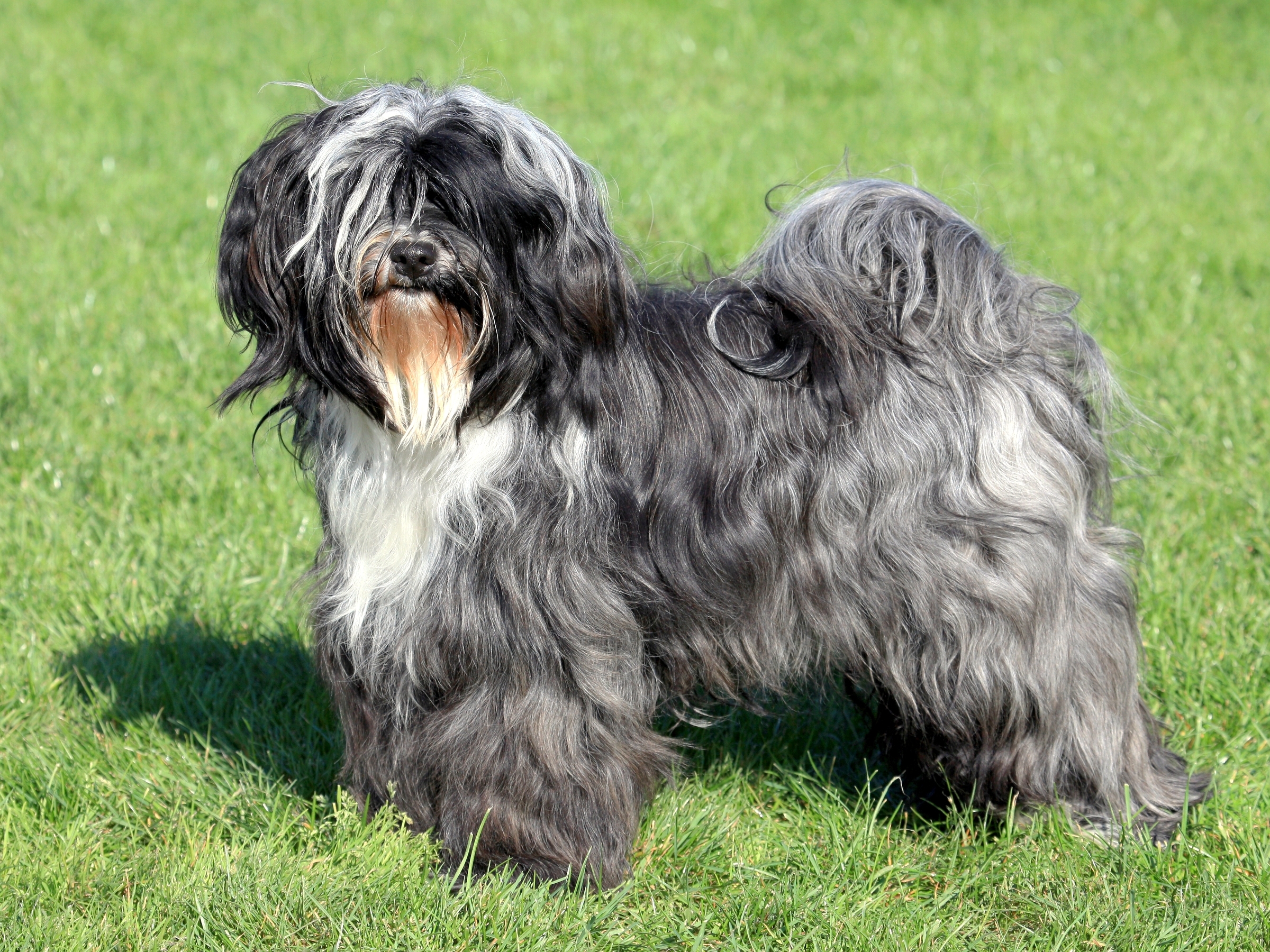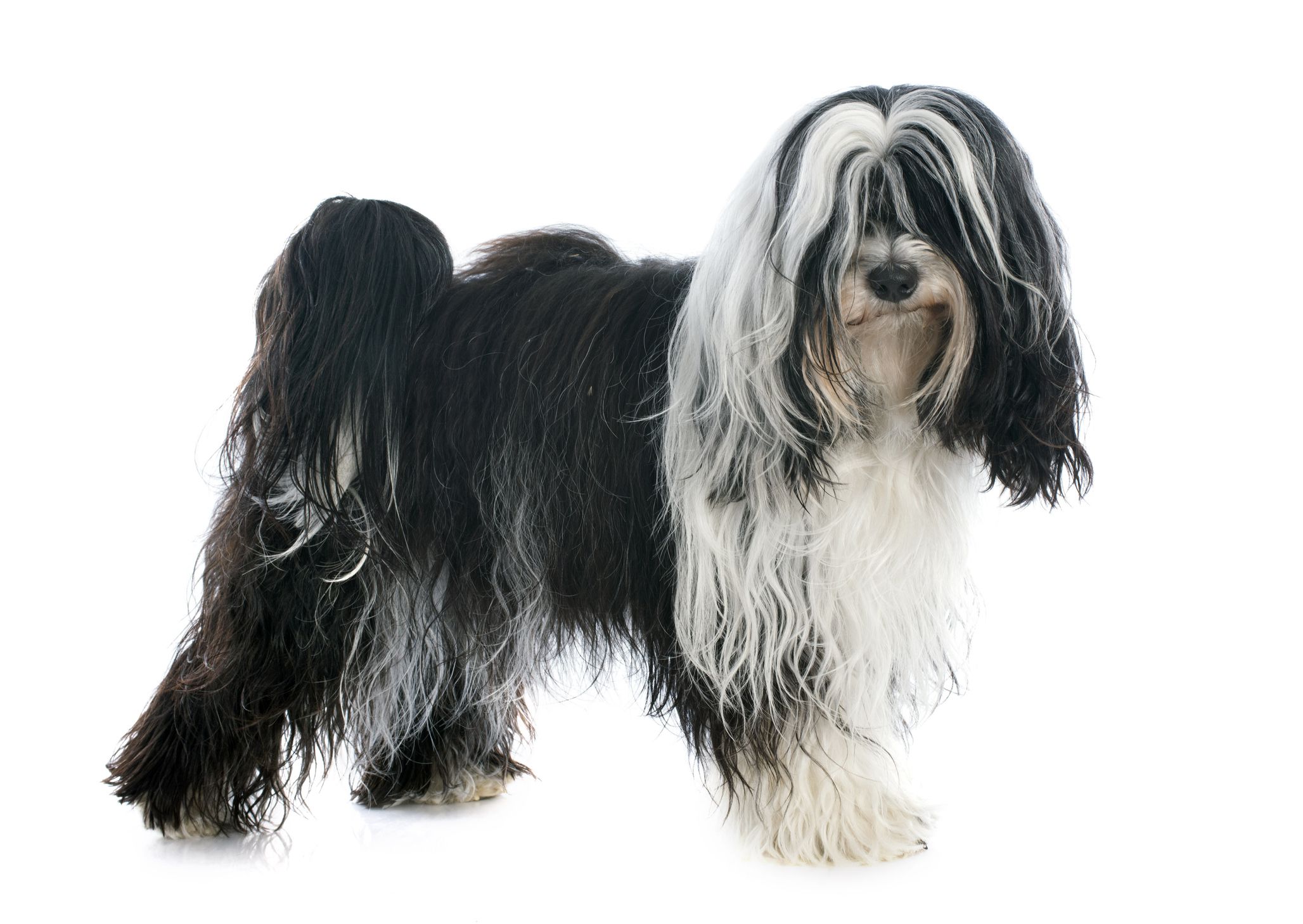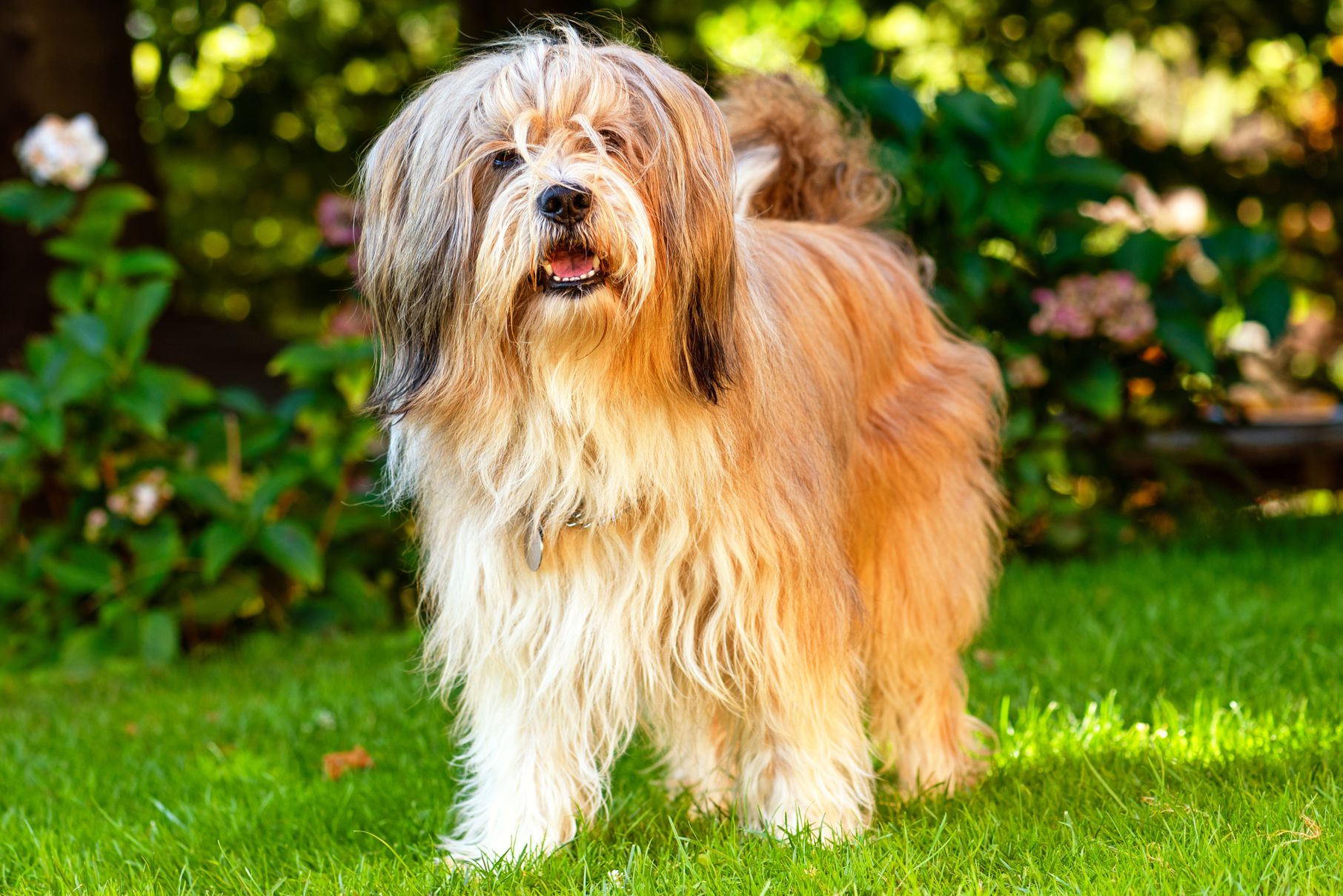
The Tibetan Terrier, often dubbed the “Holy Dog of Tibet,” has a rich heritage that dates back over 2,000 years. Despite its name, it is not a true terrier but rather a versatile, all-purpose companion and working dog. Tibetan Terriers were bred and raised by monks in the monasteries of Tibet, where they were cherished as companions, good luck charms, and herders of livestock.
These dogs were rarely sold — instead, they were given as gifts of gratitude or good fortune. Tibetan Terriers were known for their agility in navigating the rugged, mountainous terrain, assisting herders by retrieving lost sheep and acting as watchdogs in monasteries and villages.
The breed was introduced to Europe in the 1920s by Dr. Agnes Greig, a British physician stationed in India, who was gifted one after successfully treating a Tibetan woman. The Tibetan Terrier gained recognition in the West, and the American Kennel Club (AKC) recognized the breed in 1973.
Tibetan Terriers have steadily gained popularity worldwide, appreciated for their intelligence, affectionate demeanor, and adaptability. Their non-shedding coat and friendly disposition make them a popular choice among dog lovers seeking a versatile family companion.
Tibetan Terriers are medium-sized dogs with a distinctive, profuse double coat and a square, sturdy build. Their appearance exudes both elegance and ruggedness.
• Height: 14–17 inches (36–43 cm)
• Weight: 18–30 pounds (8–14 kg)
• Build: Medium, square, and well-balanced
• Coat: Long, profuse, fine, and dense double coat; can be wavy or straight
• Color: All colors and combinations are acceptable, including white, gold, tricolor, black, and brindle
• Head: Strong skull with a marked stop and a bearded muzzle
• Eyes: Large, dark, and set wide apart with an expressive gaze
• Ears: V-shaped, pendant, and heavily feathered
• Tail: High-set, plumed, and curled over the back
One of the most distinctive features of the Tibetan Terrier is its large, flat, and round “snowshoe” feet, which help it traverse snowy and rocky terrain with ease.
Tibetan Terriers are intelligent, loyal, and affectionate dogs with an adaptable and people-oriented nature.
• Affectionate: Deeply bonded with family members
• Alert: Keen watchdog abilities but not aggressive
• Intelligent: Quick learners with problem-solving abilities
• Sensitive: Responds best to positive reinforcement
• Playful: Enjoys interactive play and exercise
They are social and thrive on companionship but can be reserved around strangers.

The Tibetan Terrier is ideal for:
• Families seeking a medium-sized, versatile companion
• Allergy-sensitive households (due to minimal shedding)
• Active owners who enjoy moderate outdoor activities
• Households with respectful children
However, it may not be suitable for:
• Owners who dislike grooming-intensive breeds
• People seeking a highly obedient, easily trainable dog (can be independent)
Tibetan Terriers are adaptable and relatively easy to care for with appropriate grooming and exercise.
• Exercise: Moderate; daily walks and playtime suffice
• Training: Intelligent but independent; benefits from positive reinforcement
• Grooming: Requires thorough brushing several times a week to prevent matting; professional grooming recommended
• Living Environment: Suits both apartments and houses with secure yards
• Feeding: Balanced diet appropriate for medium-sized, active dogs
Socialization and gentle training from an early age help Tibetan Terriers flourish as well-mannered companions.
Tibetan Terriers are generally healthy but may be prone to:
• Progressive retinal atrophy (PRA)
• Hip dysplasia
• Lens luxation
• Hypothyroidism
The typical lifespan is 12 to 15 years.

• Lhasa Apso: Smaller, heavier coat, more independent temperament
• Bearded Collie: Larger, similar coat but more energetic
• Soft Coated Wheaten Terrier: Similar size and coat, more terrier-like in temperament
If you are seeking a charming, hardy, and affectionate medium-sized companion with a unique history and adaptable nature, the Tibetan Terrier is a rewarding choice.
Choose reputable breeders who prioritize health screenings, socialization, and breed standards. Tibetan Terrier clubs and rescue organizations also provide adoption opportunities.
United Pet Club offers comprehensive support for Tibetan Terrier owners, including microchip registration, health tools, and travel documentation services to ensure your dog stays safe and healthy.